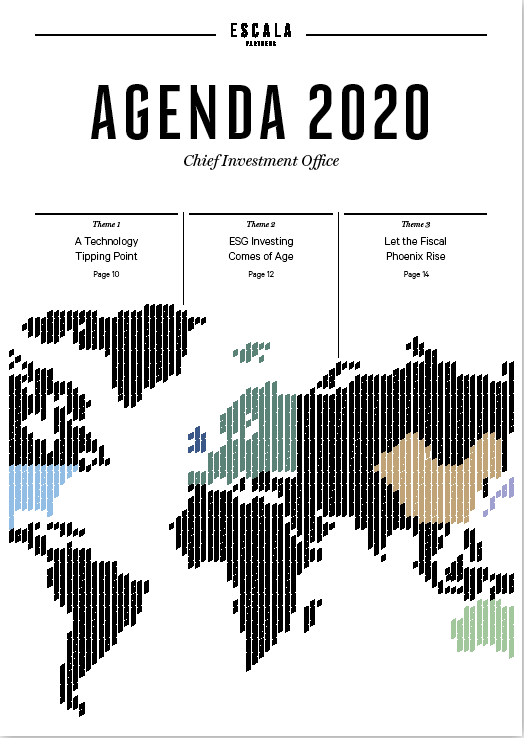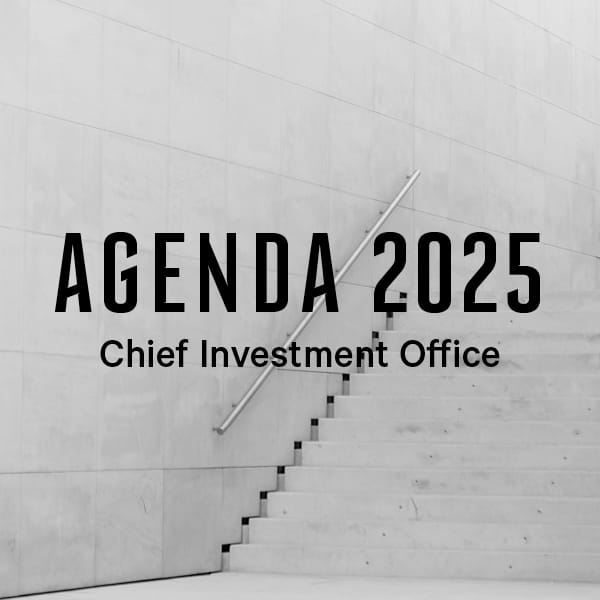-

-

United States
Low inflation should keep the US Federal Reserve on hold during 2020. The November presidential election is likely to be a major source of uncertainty. Low unemployment and trend economic growth favour President Trump’s re-election. The current Democratic frontrunners all lean towards at least a partial repeal of the 2017 corporate tax cuts, which would have negative implications for corporate earnings growth in 2021.
-

United Kingdom
The easing of Brexit uncertainty and increased fiscal stimulus should support the UK economy in 2020. A significant boost from fiscal policy would reverse a decade of deficit reducing austerity. A post-election economic revival combined with low unemployment will be partially offset by the impact on business investment of trade uncertainty with Europe.
-

Europe
The eurozone should benefit from easier monetary conditions, the recovery in global manufacturing, the lifting of the US-China trade-war uncertainty and Chinese policy stimulus that increases import demand from emerging markets. The absence of inflation means the ECB is unlikely to lift interest rates and will continue to expand its balance sheet by buying back bonds.
-

China
We believe that Chinese stimulus will be modest – enough to provide a small boost to the domestic economy, but smaller than the previous stimulus episodes in 2012 and 2016. Other emerging markets have similarly shifted toward an interest rate easing cycle, after tightening in 2018.
-

Japan
Japan should benefit from the stimulus from China and an easing of trade tensions. A boost to spending and tourism will come from hosting the 2020 Olympics. Adding to its record levels of public debt, the government is preparing to launch a sizeable fiscal stimulus equivalent to 1.8% of GDP to support fragile economic growth.
-

Australia
A pull forward of infrastructure spending and record low interest rates won’t be enough to stymie a slowdown in the economy weighed down by weak household income and poor credit growth. Bank loans as a share of deposits are at their lowest level since 2013. Some boost to the economy may come in the form of re-building efforts in the wake of the summer bushfire crisis. We expect the Reserve Bank of Australia to ease further in 2020.










